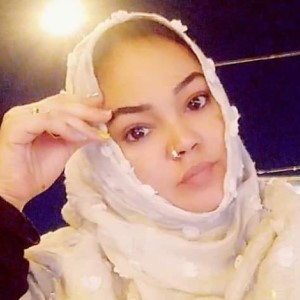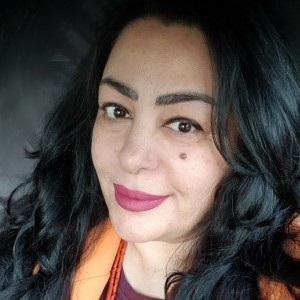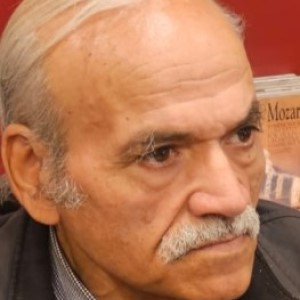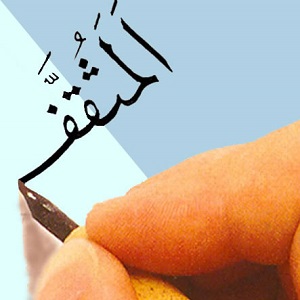ترجمات أدبية
Ali Al-Kasimi: My Grandfather's Fingers
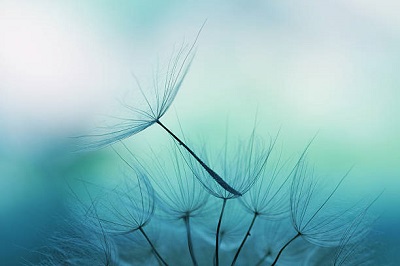
أصابع جدي
بقلم: د. علي القاسمي
ترجمة: حسن درير
***
My Grandfather's Fingers
by Ali Al-Kasimi
Translated by: Hassane Darir (Professor of Translation and Terminology, Cadi Ayyad University, Marrakech)
and Revised by: W Richard Oakes Jr , (PhD-University of Edinburgh Independent Scholar
***
I will never forget that night when my grandfather surrendered his soul. My father and my uncles surrounded the bed in which he was lying, while their sad eyes were fixed on him. Meanwhile, my mother and my uncles’ wives were sitting sullen at the back of the room, and tears were silently running down from their eyes. We children were prey to bewilderment and grief.
My grandfather was sure that he would leave us that night. He realized this a few months earlier, and kept repeating his prediction that he would die when all the fingers and toes were paralyzed, and that he would breathe his last sigh on this earth as soon as the last of his twenty fingers and toes, the big toe of his right foot, which had been injured that morning, would become paralyzed.
Until the last moment, my grandfather's lips were striving to recite verses from the Holy Qur'an, which he had memorized by heart, since he was a boy in the Qur'anic school. His last movement before closing his eyes was one look at his right palm and another at his left. Then most of his sons standing beside him said, “Yes, yes, the fingers,” and tears gushed out of their eyes; the women wailed, and the children cried.
My grandfather had caught a strange disease. At first, it seemed easy, but then its danger intensified, and all the amulets of the village's faqih, and the mixtures of its herbalists, were unable to treat and cure him. Even the medicines prescribed to him by the doctor of the neighboring town failed to stop the disastrous disease. One day, my grandfather noticed, when he was over ninety-years old, that the pinky of his left hand had lost the ability to move, or rather, that he could no longer move it when he wanted to. He was very alarmed by that.
When his sons learned of the news, they rushed to him from their rooms one by one, as they all lived in one house, and divided their livelihood and food, according to the old traditions. They tried to comfort him, saying that it was a temporary mishap, and that the pinky would return to its former state soon. They were astonished by his extreme anxiety, especially since the rest of his body was in good health, and that the paralyzed pinky did not cause him any pain. In addition, he did not need that pinky, nor did he use it for work, not even for eating. Then, why all this anxiety and panic?
But my grandfather looked at the matter in a different way, and had his own conviction that no one knows how he came to it or how true it is. He believed that if the pinky ceased to feel and move, it would inevitably lead to the adjacent ring finger being affected, and that paralysis of the ring finger would inevitably lead to paralysis of the middle finger, the index finger, and the thumb. When all the fingers of the hand lost their ability to feel and move, the entire arm would be at risk. Then, the disease would affect the fingers of the other hand, and then the toes, one by one. After all the fingers and toes are paralyzed, the person dies. But my father and uncles assured him that his pinky would heal soon, and that it would not suffer any harm. They had known my grandfather for a such a long time in good health, that they imagined that he would live forever.
None of my uncles knew where my grandfather came up with that medical theory, which has no evidence for its validity, and no clinical precedent that suggests the possibility of its occurrence. They had never heard of a person who died in this way before. On the contrary, we have all heard of people who have lost their fingers, or were born without them, but they are still alive. We have seen some of these people. But none of my uncles was able to convince my grandfather of the error of his theory. He would often stick to his opinion, and staunchly defend it, sometimes to the extent of stubbornness, supporting his point of view with arguments and citations drawn from proverbs, poems, aphorisms, and everything in his memory, which is rooted in the distant past. Therefore, they stopped discussing the matter with him, hoping that the days would prove the opposite of what he imagined. And they increasingly accompanied him on the short walks that he used to have every afternoon on the river shore.
However, as the Arabic saying goes “The ships were sailing into a headwind”. Just two weeks after the pinky of his left hand was injured, he woke up one day saying that the ring finger next to it had stopped moving. For him, this confirmed his theory, which made my father and uncles perplexed, and unable to say anything.
Surprisingly, my grandfather attached the utmost importance to the fingers and toes, more than any other part of the body. Fingers, in his opinion, are the epitome of health and wellness, because their pulse is directly connected to the heart, and their nerves go straight to the brain: “Don't you see that the doctor palpates the wrist, the base of the palm that holds the fingers?” The beauty of a woman, in his view, lies in the shape of her fingers, their symmetry, their softness, and the cleanliness of her nails. He confirms this saying: “Even a blind person can recognize a beautiful woman just by shaking her hand.”
When my grandfather wanted to express his love for his children, he did not say: “You are as dear to me as my eyes”, as people in our village usually say, but he told them: “You are more precious to me than my fingers.” Then he mentioned the saying of the Bedouin lady who was asked which of her children was her most beloved, and she replied: “Their young ones until they grow up, and their sick until they recover, and their absent until they return.” Then he added: “Besides that, I love you as much as I love my fingers, and there is no difference between one finger and another.”
We, his grandchildren, would feel the warmth of his tenderness even more when he put his hand on our heads, stroked our hair with his fingers, or gently ran his fingers over our cheeks. For us, that was an unmistakable sign of tenderness and satisfaction, more than a kiss on the cheek, or a hug on the chest. When he befriended us or played the "palm reading game" with us, which he called "finger reading", he would hold the fingers of one hand and stare, not at the inside of the palm, but at the inner finger lines. For example, you would live long if the lines of your fingers were far apart. And you would be in good health, if at the base of each finger there were small interlocking lines. Furthermore, the clarity of the lines of your fingers indicates the happiness that you would obtain, provided that you study your lessons well and obeyed your parents.
I still remember that time when we played puzzles and riddles with my grandfather. We used to ask him some riddles that we picked up at school from other children, and when he was unable or pretended to be unable to solve them, we got filled with joy and pride, and we raced to loudly give the correct answer. When it was his turn to pose a riddle, he simply asked: “What is the difference between a human and an animal?” We confidently responded: “Language,” because our teacher had us memorize the definition that “man is a speaking animal.” No signs of admiration or satisfaction showed on the face of my grandfather, and he said: “An animal has its own language, otherwise what do you call the chirping of birds, the barking of dogs, the braying of a donkey, and the neighing of a horse?” We thought for a moment and then some of us said: "thinking. Animals don't think.” And some of us repeated: “Yes, the difference between an animal and a human is thinking.” My grandfather smiled the victor’s smile and the humility of the knower, and said: “How do you explain the fox’s cunning and its tricks, then?” When we could not come up with an answer that would satisfy him, our eyes turned to him, eager for an answer. Then he said in the tone of someone who is confident in his knowledge: “The difference between man and animals, my dears, lies in the fingers. Mankind is human because he can control the movement of his fingers, and can use them to pick fruits from the trees of the forest, and can hold stones to light a fire, and can make tools. We work with our fingers and the animal cannot do the same.” He bowed his head thoughtfully in silence for a moment, then raised his head and fixed his eyes on us adding: “Fingers do not only distinguish man from animals, but they also distinguish one man from another. Don’t you see that the police can recognize a criminal from his fingerprints?”
My grandfather sincerely believed that the fingers are more important than any part of the body. He used to astonish us when he said: “Fingers are more important than the tongue and the eye, for example. The mute can express his thoughts with his fingers in sign language, and the blind can recognize things by touching them with his fingers. But the tongue and the eye do not replace the fingers, and they are unable to perform their functions.” We were unable to respond, although some of us were not completely convinced of what he said.
I don't know how my grandfather could insert fingers into any topic that we were discussing. If we talked, for example, about music and dancing, he wouldn't fail to mention that fingers are essential for them, for you cannot play the piano, the lute, or the drum without your fingers. Even the flute that we blow through the mouth remained a mere hoarse sound, unless the fingers moved over its openings, thus turning it into a melodious tune. The best dancers, in his opinion, are the ones who dance with their fingers and perform the dabka with their toes.
In short, my grandfather believed that a person's strength, health, and humanity are manifested in their fingers, provided that the fingers are closely aligned. If separated, they lose their strength and rigidity. Even more so, he believed that diseases infiltrate the body through the fingers, and precisely from their ends, especially if they are spread apart. That is why he made sure that his fingers were always close together, even if there was no need for that.
Undoubtedly, my grandfather breathed his last, bemoaning his inability to gather his spread apart fingers, and that is why he nodded at them with his eyes only.


